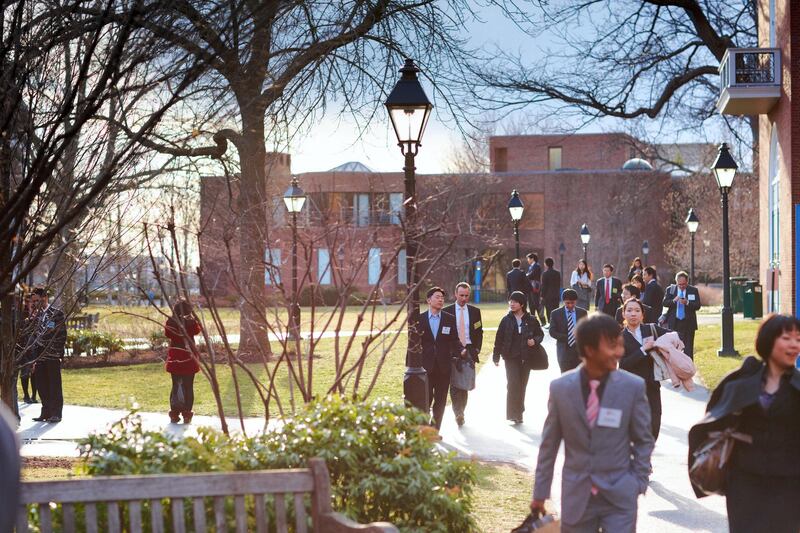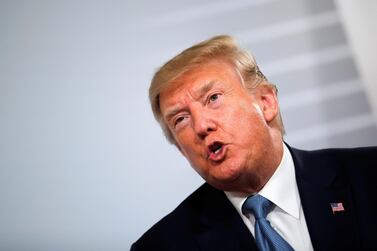The disturbing case of Ismail Ajjawi tell us much about the increasingly hostile American attitude to the outside world.
The 17-year-old Palestinian refugee from Tyre, Lebanon, secured a coveted scholarship to attend Harvard University but on his way to take up his hard-won place at one of the world’s leading educational institutions, he was denied entry by Customs and Border Protection (CBP) at Boston Logan International Airport last week.
Mr Ajjawi says a CBP agent questioned him for five hours, including about his religious practices, and discovered Facebook posts by people he is friends with that were critical of US policies. He says the woman started screaming at him, even though, as he pointed out, he had not authored, endorsed or even "liked" them. Yet his visa was then revoked and he was immediately deported.
The NGO that administers these scholarships, an American non-profit organisation called Amideast, has long faced obstacles to Palestinians pursuing scholarships they have earned to US universities.
Israel has repeatedly blocked Palestinian students from travelling to the US, particularly from Gaza, as part of its punitive campaign against the population.
Worse still, Hamas has also blocked Palestinian students from leaving Gaza to pursue US scholarships, appallingly claiming to be protecting them from western influences.
But it is extremely unusual for such students to denied entry by US officials.
In part, this is the result of new Trump administration policies requiring visitors to submit all their social media usernames for the past five years.
Billed as a counterterrorism and national security measure, in the current atmosphere it is plainly degenerating into a campaign to enforce a narrowly drawn political correctness by self-appointed thought police officials, going far beyond their legitimate security mandate.
There are numerous anecdotal reports of CBP and immigration officials adopting aggressive tones and attitudes towards travellers on the grounds of some insufficient acquiescence to the US administration's world view.
In this case, however, no such opinions were discovered at all. Rather, like millions of people worldwide, Mr Ajjawi had a mere distant online connection to people who expressed criticism of certain policies – something that is now apparently sufficient to be denied entry into the US.
Hostile attitudes from the top have fed a growing and arbitrary intolerance by US officials on the operational immigration frontlines, who it seems now feel empowered to adopt extreme attitudes towards certain visitors.
It is also reflective of the growing desire to find any rationalisation, no matter how tenuous and absurd, to deny entry to migrants, particularly those from Muslim countries.
This incident is less a direct result of State and Homeland Security department policies and more indicative of a growing attitude of intolerance and thin-skinned hypersensitivity to any criticism, in this case even by third parties.
However, given that Mr Ajjawi is a Palestinian, this administration's antagonism towards Palestinians is surely part of the backdrop to his treatment.
Under president Donald Trump, the US has backed the Israeli occupation and annexation of Palestinian territories and eliminated all diplomatic representation for and from the Palestinians. It has cut off all aid to Palestinians and denied visas to non-violent Palestinian leaders with deep connections to the US such as Hanan Ashrawi.
The State Department has long stopped referring to occupation in any official documents such as its annual human rights reports. It has also now dropped any mention of Palestine or the Palestinian Authority from its publications and website.
The entire thrust of the Trump administration’s approach has been to shift US policy and political discourse to accepting that the occupied territories are simply part of Israel and are neither Palestinian nor occupied. That has involved, in practice, a rejection of all things Palestinian.
That is not directly related to Mr Ajjawi’s ordeal – but it's not irrelevant either.
The scrutiny levelled at him, with his phone and laptop searched for five hours, speaks to an attitude of jingoism and xenophobia, especially towards Muslims, Arabs and Palestinians.
Such attitudes are endemic in the administration, as indicated by Mr Trump's Twitter posts and his comments aimed at immigrants, foreigners and all those who disagree with him, from telling four congresswomen of colour to “go back” to their countries of origin to using an expletive to describe African countries.
If critics of Mr Trump or US policy, even members of Congress born in the US, should "go back”, then it makes a kind of twisted sense that anyone whose online associates might have also been critical should simply be denied entry in the first place.
The good news is that there has been a widespread outcry about the injustice of this case and Harvard University, Amideast and others are calmly and intelligently working to reverse Mr Ajjawi’s exclusion and get him to Harvard as soon as possible.
The bad news is that this is how things are now, and not all instances of unjust abuse will be this blatant and high profile or get this much exposure.
The US is still the world's greatest power. But under Mr Trump, it is increasingly thinking and acting like a small, besieged, fearful little country.
Hussein Ibish is a senior resident scholar at the Arab Gulf States Institute in Washington






